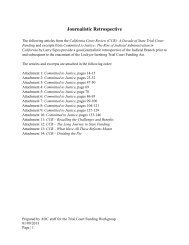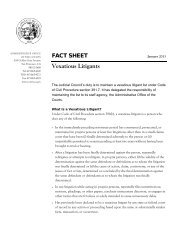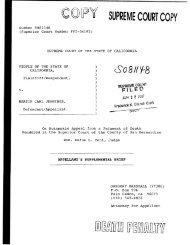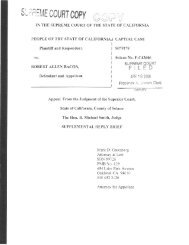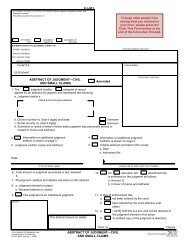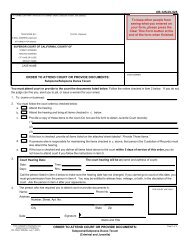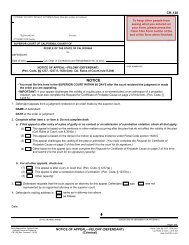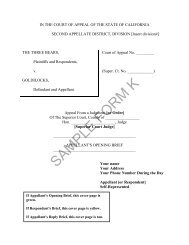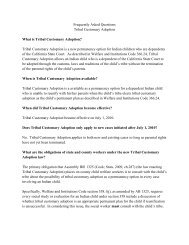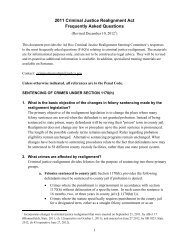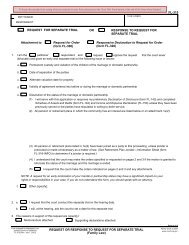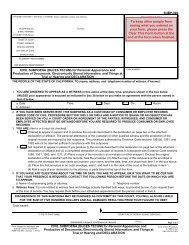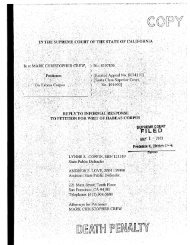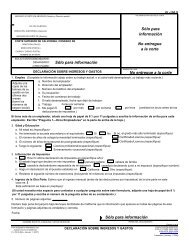Appellant, William Satele, Reply Brief - California Courts - State of ...
Appellant, William Satele, Reply Brief - California Courts - State of ...
Appellant, William Satele, Reply Brief - California Courts - State of ...
You also want an ePaper? Increase the reach of your titles
YUMPU automatically turns print PDFs into web optimized ePapers that Google loves.
c. Respondent Fails To Understand The Origins Of The Error.<br />
In addition to failing to understand nature <strong>of</strong> the error, respondent has<br />
misunderstood how the error occurred. This latter failure is evident from the fact<br />
that respondent at no point discusses whether the forms were inaccurately phrased<br />
in such a manner that would cause the jury to make a fmding <strong>of</strong> "personal use"<br />
even though the jurors did not really know which defendant actually fired the gun.<br />
Penal Code section 12022.53, subdivision (d) allows for the imposition <strong>of</strong> a<br />
sentence enhancement on a defendant who personally uses a gun. Subdivision<br />
(e)(l) <strong>of</strong>that section allows for the enhancement to also be imposed vicariously on<br />
one who is a principal in the crime ifthat person also violated section 186.22(b)(I)<br />
by participating in activity for the benefit <strong>of</strong> a criminal street gang. Thus, if a<br />
defendant violates section 186.22, that defendant is vicariously liable for the<br />
12022.53(d) enhancement if another principal uses a firearm regardless <strong>of</strong> the<br />
defendant's personal use <strong>of</strong> the weapon. Therefore, under the 186.22 scenario, a<br />
jury can find that one <strong>of</strong> two defendants personally fired a weapon, and that the<br />
other defendant is vicariously liable for the first defendant's act.<br />
At trial, the prosecution relied solely on this theory <strong>of</strong> vicarious liability as<br />
to the weapon enhancement because it was not proven who personally used the<br />
weapon. Indeed, the prosecutor did not argue that both defendants fired the<br />
weapon and even conceded that he did not prove appellant fired the weapon,<br />
stating that he did not have to prove appellant fired the weapon for the<br />
enhancement to be found true. The prosecutor told the jury that because <strong>of</strong> the<br />
gang allegation the jurors should not be "thrown <strong>of</strong>f' by the word "personal."<br />
(14RT 3214, 14RT 3222-3223.)<br />
In short, the argument <strong>of</strong> the prosecutor was that the jury did not have to<br />
find that a particular defendant personally used the rifle for the enhancement to<br />
apply to both defendants. The prosecutor argued that because the enhancement<br />
would attach vicariously regardless <strong>of</strong> which defendant had actually fired the<br />
weapon, the allegation had been proven, and the jury should mark the appropriate<br />
5



